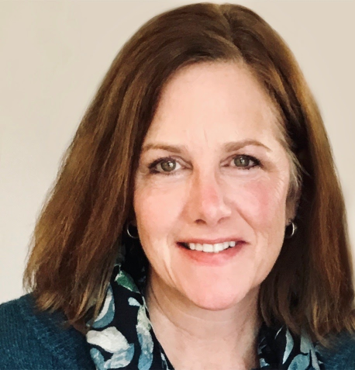A Message from LDA President, Monica McHale-Small
It seems hard to believe that it will soon be one year since I started my tenure as President of LDA. My experience of the pandemic is that time seems to be simultaneously flying by and standing still! Just as with all of our lives, my hopes and plans for the organization have shifted and have been reprioritized. The pandemic is certainly presenting challenges for all but for LDA it has also presented opportunities.
LDA has been fortunate to have Cindy Cipoletti as our Executive Director for a little over a year now. Cindy’s leadership, passion, and initiative have resulted in LDA developing alliances with other advocacy and civil rights groups. With the help of our talented staff, and in collaboration with a number of partner organizations, we have shared valuable content through webinars and podcasts. We have reached thousands of individuals around the country, many of whom have been introduced to LDA for the first time, and many others who have been surprised to discover that we are continuing our decades-long advocacy on behalf of individuals with learning disabilities and their families.
Those of you who have been long time members might be dismayed to learn that not everyone knows about LDA and some have misperceptions about who we are and what we do. Indeed, one researcher in the field of learning disabilities recently remarked that they believed that LDA was a parent only organization. LDA was born out of a collaboration between parents and researchers. The current challenges facing both children and adults with learning disabilities necessitate that LDA work now to re-cultivate and broaden collaborations with researchers and other professionals who support our vision and mission.
The COVID-19 pandemic has threatened the financial security of, and even the very existence of, many non-profits. Our organization has financial challenges but LDA is needed perhaps now more than ever. The long-standing inequity present in our public schools has been exposed for all to see during this pandemic. Access to FAPE has always been a challenge, especially in under-resourced schools, but those challenges have often been compounded in remote learning environments. Poor children and children of color continue to be disproportionately put at risk for learning and other disabilities due to exposure to environmental toxins and underregulated chemicals. It is essential that LDA not just continue to exist but that we grow and expand our capacity to provide the needed education, advocacy and support needed to ensure access to early and accurate identification for all individuals with learning disabilities, to advocate for research to enhance our understanding of multiple learning disabilities, to develop effective interventions, and to ensure access to appropriate accommodations in the educational and work environments.
LDA’s history and instrumental advocacy in gaining professional and legal recognition of learning disabilities are things to be very proud of. While we honor our past, LDA now must actively look to the future and envision and work toward becoming the organization that will truly ensure that “learning disabilities are universally understood” and that “all individuals with learning disabilities are accepted, supported and empowered”.

About Monica McHale-Small
Monica McHale-Small, Ph.D., is currently an adjunct assistant professor at Temple University. She retired from public education after twenty-seven years of service in Pennsylvania. Monica started her career as a school psychologist but spent the last fourteen years in a variety of administrative positions including, most recently, Superintendent. She earned her doctorate and masters’ degrees from the University of Pennsylvania, Graduate School of Education. Dr. McHale-Small has long advocated bringing sound research into practice in public schools. One example of this is her role on the advisory committee for Pennsylvania’s Dyslexia Screening and Early Literacy Intervention Pilot; designed to support researched based structured literacy instruction and intervention beginning in Kindergarten. Dr. McHale-Small is an advocate for responsible inclusion and equity for historically underserved students including racially, culturally and linguistically diverse students and students with disabilities. She co-founded the Greater Lehigh Valley Consortium for Equity and Excellence and she currently consults with the ACLU of PA on School to Prison Pipeline issues. Monica has served on the Board of Directors of the Learning Disabilities Association, the International Dyslexia Association, and the National Association of Pupil Services Administrators. Monica serves her own community as a board member and volunteer advocate for Coatesville Citizens Who Seek Educational Equality.


